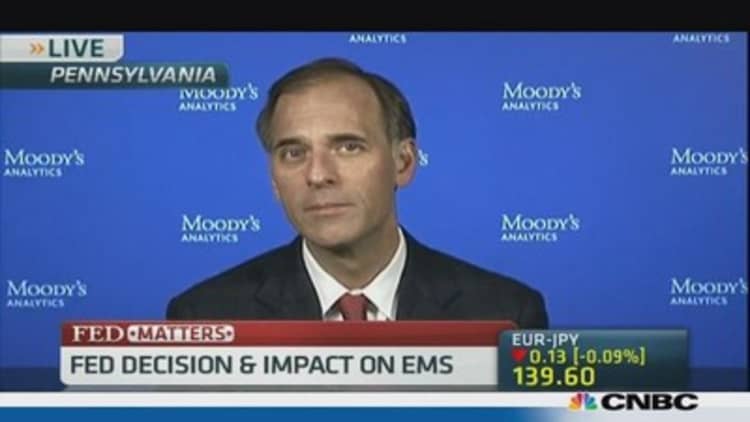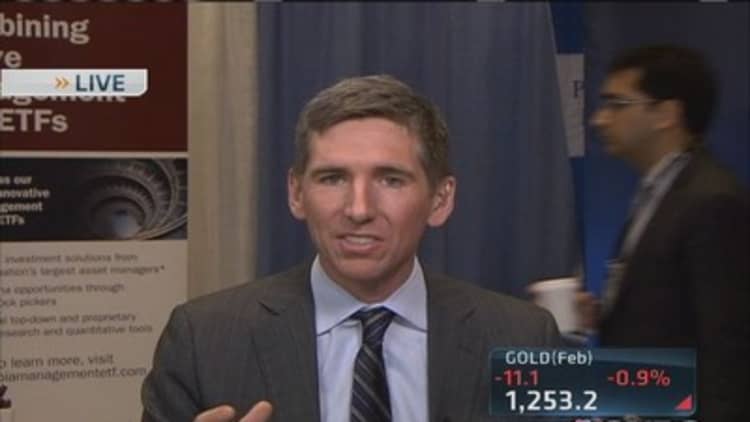The latest selloff in emerging markets may have spurred fears of a contagion to developed markets, but what happens in emerging markets mostly stays in emerging markets, Goldman Sachs said.
"Periodic spillovers from portfolio adjustments are more likely to lead to short-lived pressures – as volatility breeds volatility – than longer-lasting ones," Goldman said in a note. "We view the recent declines as an over-reaction," it added.
(Read more: Are emerging markets on the brink of another crisis?)

In the wake of the Federal Reserve's decision Wednesday to further taper its asset-purchase program, U.S. and Asian equity markets fell sharply, extending recent losses.
Asian currencies headed back toward recent lows against the dollar and the Turkish lira slipped 0.2 percent to 2.26 to the dollar, after strengthening Wednesday on a sharp hike in Turkish interest rates a day earlier.
"Since late last week, we have seen a clear break in developed market assets, with significant sell-offs in U.S. equity and credit and a corresponding rally in Treasury markets," Goldman said. "Coming on the back of emerging market turbulence, this has led to renewed focus on whether emerging market problems could spill over (or are already spilling over) to the economic outlook for the developed world."
(Read more: Why emerging market concerns could boost US stocks)
But it noted that even during the Asian Financial Crisis and the broader emerging market crises of the late 1990s, developed economies didn't feel the sting. "Transmission of emerging market problems, even very substantial ones, to the rest of the world through these channels is far from a foregone conclusion," it said, believing the threshold for contagion is high.
"Emerging market demand would have to slow sharply further to have a large impact through trade channels, particularly since lower commodity prices and bond yields would provide some offset," Goldman said.
While there is a larger risk that contagion could come through the banking system or financial markets via tighter financial market conditions, the developed world's banking exposures to emerging markets aren't particularly alarming, it said.
(Read more: Traders watching for signs to see if this selloff is the big one)
"Slower emerging market demand growth would likely put downward pressure on commodity prices, improving real incomes for developed market consumers," Goldman said. "Capital flowing out of emerging market economies may flow into developed market economies, improving their financing conditions."
At the same time, if the emerging world's struggles do begin to have an impact, developed market policymakers can adjust their policy, possibly by signaling easier monetary policy, it noted.

Additionally, Goldman isn't convinced the pressure in the developed markets originates with emerging markets, with the U.S. outlook a bigger driver of developed market performance.
(Read more: The 3 culprits behind the emerging markets rout)
"The wider pattern of asset performance is more consistent with broad-based concerns about slower growth, including in the U.S. economy," it said. "Better data helped drive December's market rally and fuel optimism at the start of the year. Weaker data in recent weeks has helped to reverse that optimism, alongside risk reduction."
It expects the volatility to be short-lived, with the U.S. economy likely to pick up again.
—By CNBC.Com's Leslie Shaffer; Follow her on Twitter @LeslieShaffer1




